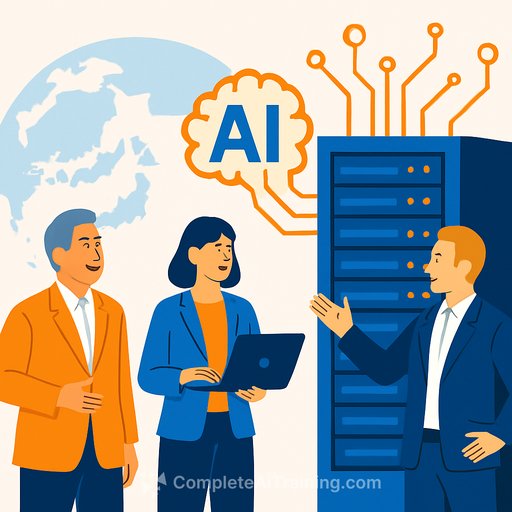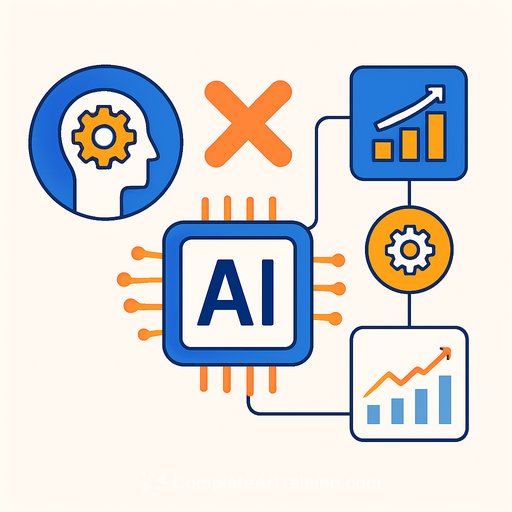RIKEN Partners with Fujitsu and NVIDIA to Develop FugakuNEXT, Japan’s Next-Gen AI-HPC Platform
RIKEN has teamed up with Fujitsu Limited and NVIDIA to develop Japan’s next flagship supercomputer, FugakuNEXT, targeting operation around 2030. This system marks a first for Japan by integrating GPUs as accelerators, with NVIDIA leading GPU infrastructure design and Fujitsu handling the overall system, compute nodes, and CPUs. Together, they aim to create a unified AI-HPC platform that combines simulation and AI capabilities to tackle complex societal challenges through computational science.
FugakuNEXT: Beyond Traditional HPC
Unlike previous supercomputers that focused primarily on simulation performance, FugakuNEXT will fuse high-performance CPU technologies inherited from Fugaku with GPU accelerators. This hybrid approach is set to maximize execution efficiency for both simulation and AI workloads. The project emphasizes innovation beyond hardware improvements, pushing software and algorithm development to drive comprehensive gains in application performance.
The collaboration brings together RIKEN’s software and algorithm expertise, Fujitsu’s CPU and system integration skills, and NVIDIA’s GPU technology and ecosystem. The goal is to build a globally competitive system and foster an international ecosystem by deploying FugakuNEXT worldwide. The project targets up to a 100-fold increase in application performance compared to Fugaku.
Addressing Challenges in Supercomputer Development
Fugaku achieved a remarkable 40-fold hardware performance improvement over its predecessor, the K computer, aided by advanced semiconductor and memory technologies. However, recent slowing gains in semiconductor process technology have made large hardware improvements increasingly difficult. This reality makes innovations in software and algorithms essential to continue driving performance forward.
Strengthening Japan’s HPC and Semiconductor Competitiveness
FugakuNEXT will bolster Japan’s semiconductor and computing infrastructure while maintaining national sovereignty in AI and computing technologies. The system will feature Fujitsu’s next-generation CPU, tentatively named FUJITSU-MONAKA-X, combining ultra-many-core architecture with enhanced SIMD capabilities and integrated matrix computation engines for low-latency AI inference.
Alongside this, NVIDIA’s GPU accelerator will provide high parallel processing power and bandwidth, optimized for HPC and AI workloads including generative AI. The design will explore advanced CPU-GPU connection technologies and cutting-edge memory solutions, aiming for a hardware performance improvement of five times over Fugaku.
Software and Algorithm Innovations
Software advances will be key to unlocking FugakuNEXT’s full potential. The project will pursue mixed-precision computing, AI-driven acceleration methods like surrogate models and Physics-Informed Neural Networks (PINNs), and optimizations such as leveraging low-precision units for high-precision results.
RIKEN will lead joint R&D efforts with Fujitsu and NVIDIA to innovate software and algorithms, aiming to multiply effective application performance by 10 to 20 times beyond hardware gains. The combined hardware-software approach targets an overall 100-fold application performance boost while staying within the same 40MW power envelope as Fugaku.
AI for Science and Zetta-Scale Ambitions
FugakuNEXT will elevate “AI for Science” by automating research workflows like hypothesis generation, validation, and experiment automation, accelerating scientific discovery cycles. The system aims to surpass 600 exaFLOPS (EFLOPS) in AI-oriented FP8 precision and become the world’s first Zetta-scale HPC system.
Software, AI models, and applications developed will be accessible via cloud platforms such as the “virtual Fugaku,” fostering a global ecosystem before the actual system launch.
Application Development and International Collaboration
RIKEN will support GPU porting, optimization, and testbed construction using existing CPU/GPU resources. Collaboration with the U.S. Department of Energy (DOE) will advance continuous performance evaluation and co-design of system and applications, leveraging automated benchmarking environments.
RIKEN, Fujitsu, and NVIDIA will also develop advanced software environments to harness AI processing, create libraries for AI-accelerated computations, and support AI-driven code generation and optimization. The existing Fugaku software stack and virtual Fugaku platform will be enhanced for FugakuNEXT compatibility.
Real-World Application: Earthquake Simulation
One notable project involves Associate Professor Kohei Fujita’s team developing a multiscale simulator for earthquake and tsunami modeling. The simulator aims to seamlessly integrate large-scale crustal deformation with localized seismic motion. This tool could improve predictions of aftershocks and contribute to disaster prevention strategies.
Roadmap and Future Directions
- Basic design completion is expected by fiscal year 2025.
- Detailed design phase will begin in fiscal year 2026.
- RIKEN plans to establish international collaborations, especially with DOE labs, to develop software and algorithms.
- Human resource development will prepare users for FugakuNEXT’s operational launch around 2030.
- Integration with quantum computing (QC) is anticipated, aiming to create hybrid QC-HPC environments leveraging shared software stacks.
Statements from Project Leaders
Makoto Gonokami, RIKEN President: “FugakuNEXT builds on decades of computational science leadership, combining hardware, software, and algorithms to achieve unprecedented performance. This project aligns with Japan’s semiconductor strategy and will contribute to solving global challenges while supporting sustainable industrial growth.”
Vivek Mahajan, Fujitsu CTO: “We are proud to contribute our FUJITSU-MONAKA CPU technology and system expertise to develop next-generation computational infrastructure. Our quantum computing initiatives will integrate with FugakuNEXT to create a quantum-HPC hybrid platform, opening new computational possibilities.”
Ian Buck, NVIDIA VP of HPC: “FugakuNEXT will deliver zettascale performance with near 100x application speed improvements at similar energy consumption. This system will accelerate research and industrial competitiveness in Japan and beyond.”
For those interested in expanding skills related to AI and HPC, exploring courses on Complete AI Training offers practical learning paths aligned with emerging technologies in AI and high-performance computing.
Your membership also unlocks:






